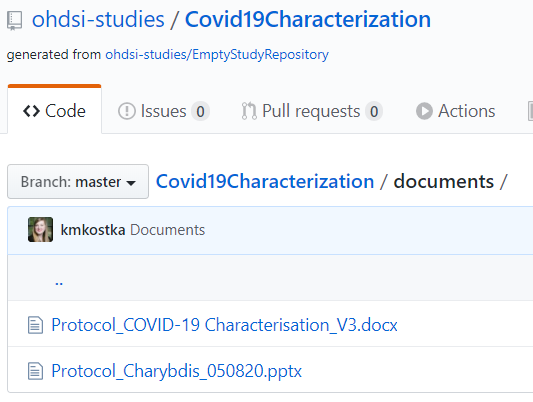• Early results from the external validation of our prediction models have been extremely encouraging. We look forward to further validating the model, including in our newly mapped SIDIAP database. This Spanish database currently includes more than 13,000 COVID-hospitalized patients, which will greatly inform all ongoing COVID-related studies ongoing in the OHDSI community.
• Thank you to all community members who have provided feedback to the treatments and outcomes section of Project SCYLLA. We would like to have all feedback by the end of the week so we can finalize the appendices of the protocol. You can post feedback here.
• Our next characterization study is now being called Project CHARYBDIS (Characterizing Health Associated Risks , and Your Baseline Disease In SARS-COV-2. There are numerous study topics that can be focused within this project, including asthma, cancer, cardiac outcomes, chronic kidney disease, COPD, elderly, end-stage renal disease, gender differences, heart disease, hepatitis C, HIV infection, hypertension, immune disorders, obesity, pediatrics, pregnancy, testing, tuberculosis, type 2 diabetes … and plenty more. Please reach out to project leads Kristin Kostka, Talita Duarte-Salles or Albert Prats-Uribe if you would like to collaborate on this important effort.
• For those less familiar with Greek mythology, SCYLLA and CHARYBDIS were mythical sea monsters that needed to be navigated through in Homer’s epic novel Odyssey. While we certainly have more positive views of our own SCYLLA and CHARYBDIS, we also believe that navigating through both studies will help us get through this modern-day odyssey we are facing. This is our journey, and we believe global collaboration will help us get through our own sea monsters. We hope you will join us in these efforts.

